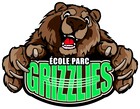We encourage and appreciate strong parental involvement to maintain a family and community feeling within the school. Knowledge of French is not a requirement. Our parents assist in many areas within the school, and help to work as part of a team focused on the education of their children. We also have a very involved Kindergarten Parents' Group as well as a French Immersion Playschool group.
High expectations are placed on students and past success is supported by high marks on Provincial Achievement Tests. Students in the French Immersion program are required to take their core courses (Math, Science, Social Studies and French Language Arts) in French, but are also offered English Language Arts for approximately 40 minutes per day. They typically catch up to their English playmates' reading and writing levels by the end of grade 4. Parents often work with their children at home to enhance the classroom English vocabulary in the meantime. In addition to encouraging the development of a second language amongst students, our school is striving to utilize technology effectively.
All classrooms are networked and staff is committed to integrating technology in a variety of curriculum areas by using smart boards, updated computers, and projectors. Students in the French Immersion Program partake in a wide variety of cultural and French language activities such as "Carnaval" and other French language presentations. Most elementary physical education classes will be instructed in French.
Why French Immersion?
French Immersion Programs are intended for students whose first language is not French. Students will be functionally fluent in French as well as in English and develop an appreciation of the French language and culture. Students are usually introduced to early immersion in Kindergarten or Grade 1 and are prepared to the point where they can pursue postsecondary education in French. French is used as the language of instruction in most subject areas for a significant part of each school day. The benefits of second language learning are well documented.
The benefits of learning another language are many and can touch all parts of your child's life. When you learn another language you not only learn how to communicate in another language, you benefit from a whole new set of skills and abilities! Depending on when your child starts to learn another language, and the length and intensity of this experience, your child should:
- develop greater self-discipline;
- become a better listener; and
- learn to compare and contrast, solve problems and think more creatively. Gaining these skills can lead to improved learning (and higher marks!) in other subject areas, such as mathematics, science and social studies.
Learning another language in school can also open up the educational opportunities your child will have after having completed high school.
In addition, if your child knows another language, he or she:
- may have a greater chance of being accepted into universities, colleges and technical training institutions both in Canada and in other countries;
- may be able to enroll in degree programs and courses that have a second language prerequisite; and
- will have access to a larger pool of information from which to study and learn. Many Canadian post-secondary; institutions offer options to study abroad, as well as work experience opportunities that require skills in another language or for which these skills would be an advantage. Students who know or are learning another language may participate in a variety of exchange programs, summer courses and opportunities to work abroad. Learning another language will help prepare your child for the challenges and opportunities in our changing world!
As a parent, there may be times when you want to help your child accomplish their work at home. Please have a good dictionary for your child to refer to. Consult with the teacher for more information and routines you may set up at home! Parents may also wish to refer to websites for extra help like http://lawlessfrench.com.
